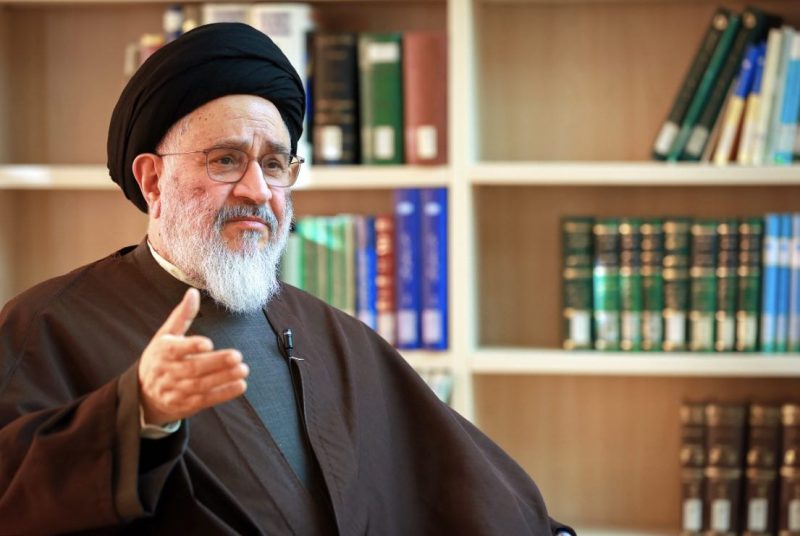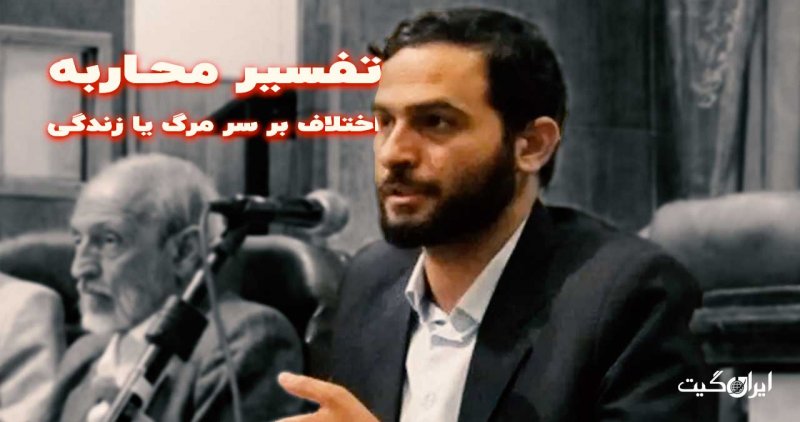Interpretation of Warfare: A Dispute Over Life or Death
Interpretation of Warfare: A Dispute Over Life or Death. According to Iran Gate, the issuance of heavy warfare sentences with minimal evidence for protesters in show trials without the right to choose a lawyer and based on excuses that have even drawn protests from religious jurists and some former judicial officials.
The execution of protesters and the broadcasting of forced interviews is a repetitive scenario that has sparked public outrage and reactions from world public opinion and politicians, especially in the West. However, what is clearly visible today is the serious disagreement among legal scholars and non-governmental jurists regarding the issuance of death sentences based on the crime of warfare.
From Debate to Tweet
Mohsen Barhani, a legal scholar and university professor, was one of the first to protest against the issuance of heavy death and warfare sentences. He wrote on his Twitter page in protest of the execution of Mohsen Shekari and serious objections to this verdict.
Regarding the case of the late Mohsen Shekari and the erroneous warfare ruling, I invite the investigating judge, the issuing court judge, and the judges who confirmed the ruling to a debate in the presence of other judges and professors. After years of working on Supreme Court rulings, I swear that the opinion of the majority of the honorable Supreme Court judges is that warfare was not realized.
Barhani also referred to a hadith, reminding of the violation of some provisions of the Islamic Penal Code: ‘Imam Ali (PBUH) strongly advised against shedding innocent blood, as nothing brings divine retribution and severe punishment closer, nor hastens the downfall of blessings and governments like the shedding of innocent blood.’
The late Mohsen Shekari committed offenses under Articles 614 and 618 but was not a warrior, and his execution was against religious law and the law. Barhani also debated the illegality of Mohsen Shekari’s execution with Jalil Mohabi, the former secretary of the Headquarters for Enjoining Good and Forbidding Wrong, in a debate hosted by Imam Sadeq University.
Jurists Also Object

The open letter from Ayatollah Mohaqeq Damad, a jurist and former head of the General Inspection Organization, to the country’s judges about the issuance of warfare sentences caused a significant stir. In part of this letter, Mohaqeq Damad wrote to the judges.
Nearly a century has passed since the establishment of the modern judiciary in Iran. During this time, despite many ups and downs, due to the presence of learned, courageous, and incorruptible judges, rulings have been issued that, due to their accuracy and reasoning and alignment with law and religion, shine in the history of Iran’s judiciary and have been a source of pride and honor, offering to the world and currently serving as a rich source for legal knowledge.
The extremism of the early days after the revolution is a stain on the face of Islamic governance that can never be overlooked. In these times, when our country faces unrest and all the problems caused by the inability of governments have now descended upon the judiciary, our country’s judges face a great test, a test observed by the entire nation of Iran and ultimately judged by the Almighty Lord. Is not God the best of judges?
Honorable ones, the expectation from you esteemed individuals is deep insight and careful consideration in issuing verdicts, especially concerning blood, which, by the consensus of jurists and indeed all wise people of the world, requires complete caution. Mistakes and leniency in blood and unlawful punishment of individuals will not be forgotten by the memory of history. Pay attention to this prophetic hadith.
It is regrettable that in these times, individuals in positions of authority, without any familiarity with the basics of judgment and awareness of the difficulty of the matter, dictate to the judiciary and order them around. One demands haste, and another demands severity. But I am confident that such unprofessional and irresponsible atmospheres will never affect the honorable, wise, courageous, and pious judges and will not lead to carelessness or, God forbid, leniency in matters of honor and life.
Precise adherence to the criminal procedure code, which is one of the most beautiful achievements of civilization and human wisdom, and comprehensive attention to the rights of the accused, alongside all these principles, attention to the human and Islamic principle of caution in blood is requested from you esteemed individuals in high judicial positions, especially supervisory positions.
International Reactions
What started the domino effect of accepting political sponsorship for the detainees of the recent protests was the issuance of death and warfare sentences in the courts held to address the protesters’ cases.
And today, the discussion of accepting political sponsorship for detainees is not limited to those sentenced to death. This symbolic behavior is rapidly spreading among European politicians, who, since most of them are members of European parliaments, have the potential to create significant pressure that could pave the way for new sanctions and potentially lead to a reduction in diplomatic relations.
It seems that the Islamic Republic has no serious intention of changing the approach to handling the cases of detained protesters, as Mohseni Ejei, the head of the judiciary, has called for the expedited execution of issued sentences without regard to public opinion pressure.

